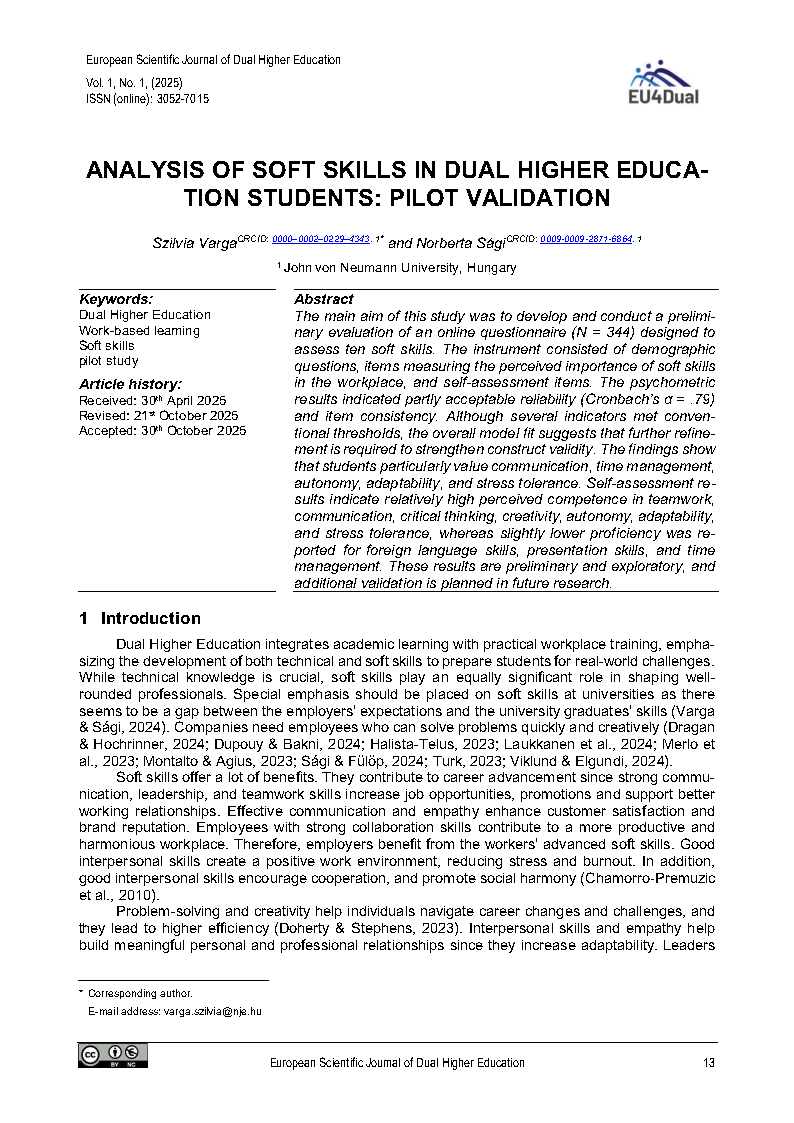Analysis of Soft Skills in Dual Higher Education Students: Pilot Validation
Keywords:
dual higher education, work-based learning, soft skills, pilot studyAbstract
The main aim of this study was to develop and conduct a preliminary evaluation of an online questionnaire (N = 344) designed to assess ten soft skills. The instrument consisted of demographic questions, items measuring the perceived importance of soft skills in the workplace, and self-assessment items. The psychometric results indicated partly acceptable reliability (Cronbach’s α = .79) and item consistency. Although several indicators met conventional thresholds, the overall model fit suggests that further refinement is required to strengthen construct validity. The findings show that students particularly value communication, time management, autonomy, adaptability, and stress tolerance. Self-assessment results indicate relatively high perceived competence in teamwork, communication, critical thinking, creativity, autonomy, adaptability, and stress tolerance, whereas slightly lower proficiency was reported for foreign language skills, presentation skills, and time management. These results are preliminary and exploratory, and additional validation is planned in future research

Additional Files
Published
Issue
Section
License
Copyright (c) 2025 Varga Szilvia, Norberta Sági

This work is licensed under a Creative Commons Attribution-NonCommercial 4.0 International License.

